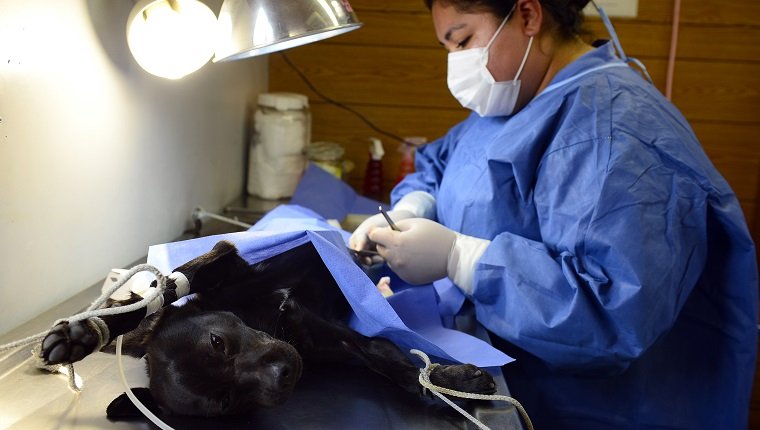Prostatitis in dogs refers to inflammation or an infectious disease of the prostate. The prostate is a gland that is responsible for the production of seminal fluids in male dogs.
Prostatitis is more common in male dogs who haven’t been neutered. It can either be acute, meaning severe symptoms appear suddenly, or it can be chronic and develop over time, in which case symptoms may not be detectable at all in some dogs.
There are many factors that can cause prostatitis in dogs, including bacterial infections, parasites, and some cancers. The condition can lead to trouble urinating and defecating, as well as pain and illness.
If you see the signs in your dog, then you should contact your veterinarian immediately for a proper diagnosis and treatment. Here is what you should know about the symptoms, causes, and treatments for prostatitis in dogs.
Symptoms Of Prostatitis In Dogs

The symptoms of prostatitis in dogs can vary depending on the cause, severity, and whether the condition is acute or chronic.
Symptoms of acute prostatitis appear suddenly and are usually quite severe, while symptoms of chronic prostatitis often come on gradually and may not appear at all for some time.
If you see the following signs in your dog, consult your vet right away:
- Lethargy
- Loss of appetite
- Weight loss
- Signs of unexplained discomfort
- Straining or difficulty while urinating or defecating
- Pus or mucus in feces or urine
- Fever
- Abdominal swelling
- Abdominal pain
- Unusual gait
- Blood or discharge coming from the urethra
- Recurring urinary tract infections
- Abscess in the prostate
- Enlarged prostate
Causes Of Prostatitis In Dogs

Several conditions can cause inflammation or infection associated with prostatitis in dogs. Although all male dogs are at risk for the condition, the risk is higher for dogs who have not been neutered and dogs that are between seven and eleven years of age.
Here are some of the possible causes of prostatitis in dogs:
- Age-related
- Trauma to the urethra
- Parasitic, viral, or bacterial infection (can migrate from urinary tract, site of a wound, or elsewhere in the body)
- Prostate cancer
- Prostate cysts
- Hormonal imbalance
- Long-term antibiotic exposure
- Compromised immune system
Treatments For Prostatitis In Dogs

Treatment for prostatitis in dogs varies based on the cause and severity of the condition. In acute cases, dogs may need hospitalization and intravenous fluids. If the condition is chronic and symptoms are mild, vets may treat dogs as outpatients and prescribe at-home care and follow-up vet visits.
Vets may prescribe antibiotics may be prescribed if the cause is bacterial. Usually dogs must take these antibiotics over the course of three to four weeks and possibly longer if blood work reveals that the bacteria hasn’t completely disappeared. Amoxicillin is one of the most commonly prescribed antibiotics for prostatitis.
If an abscess forms in the prostate, the dog may need surgical intervention.
One of the best overall treatments and forms of prevention is neutering. This can correct hormonal imbalances that may cause prostatitis, and dogs who have been neutered are less at risk for developing the condition in the first place. The prognosis improves greatly for dogs who are neutered.
Have you had your dog neutered to reduce the risk of prostatitis and other conditions? Do you keep up with regular vet visits to catch problems early? Then let us know in the comments below!









